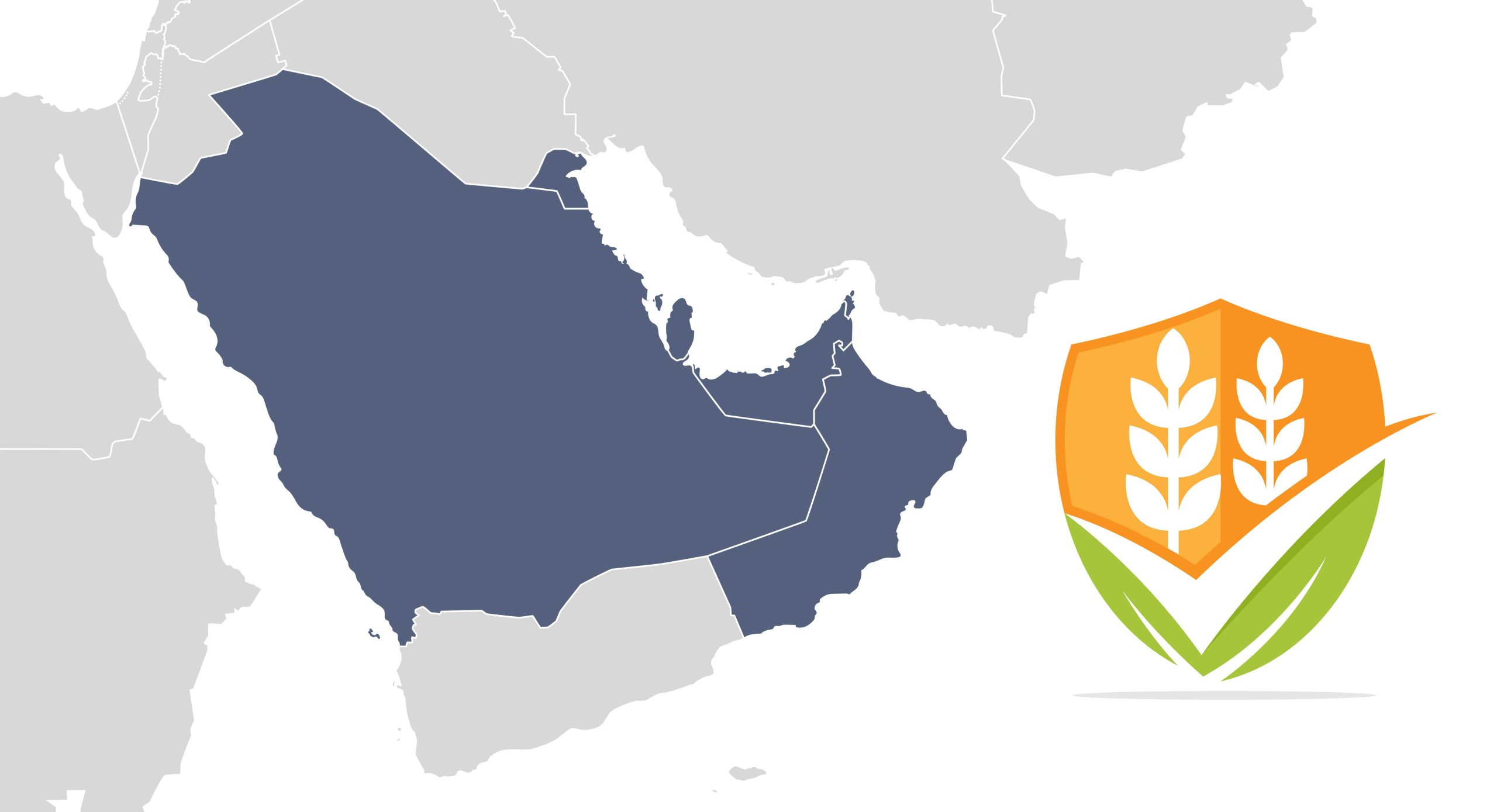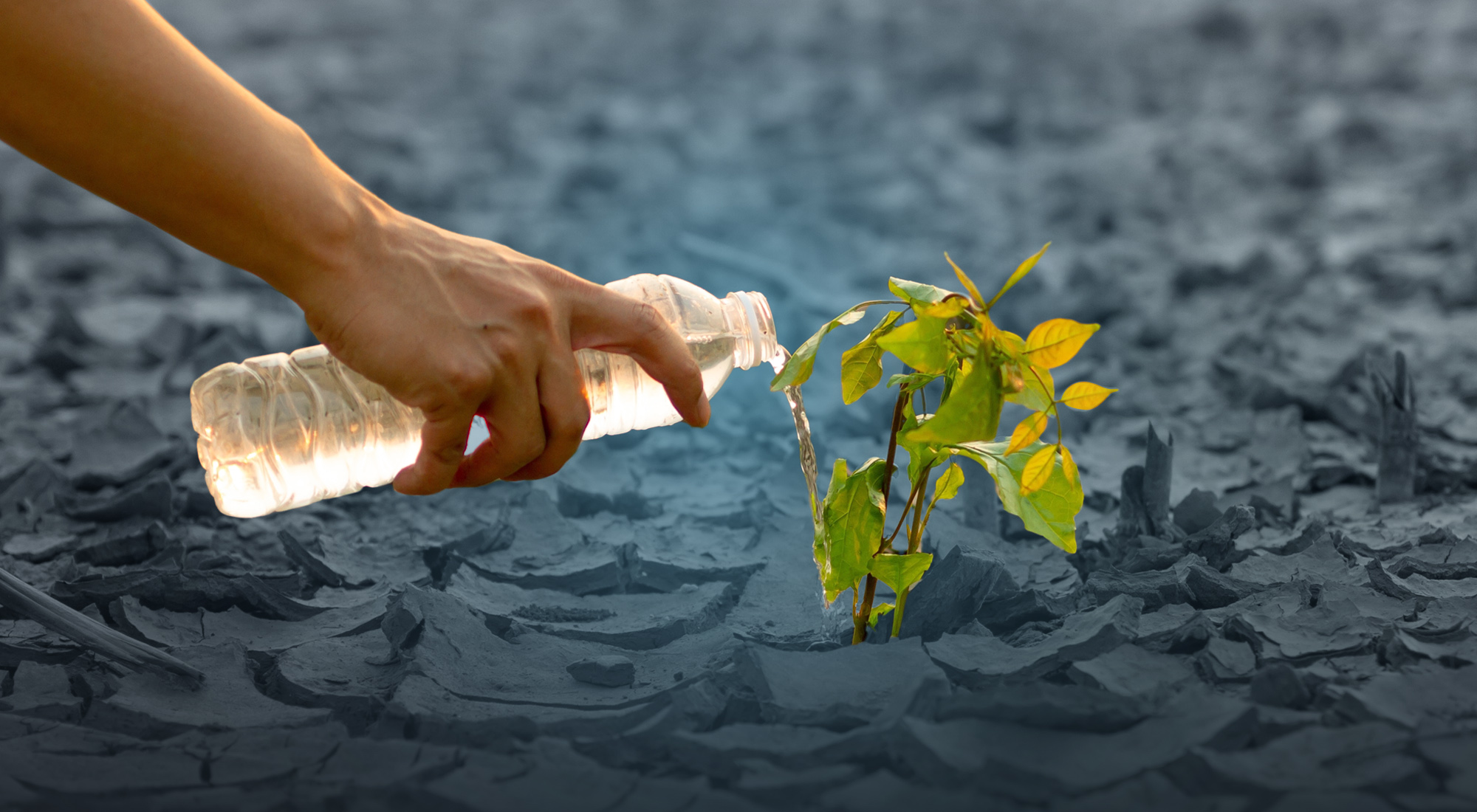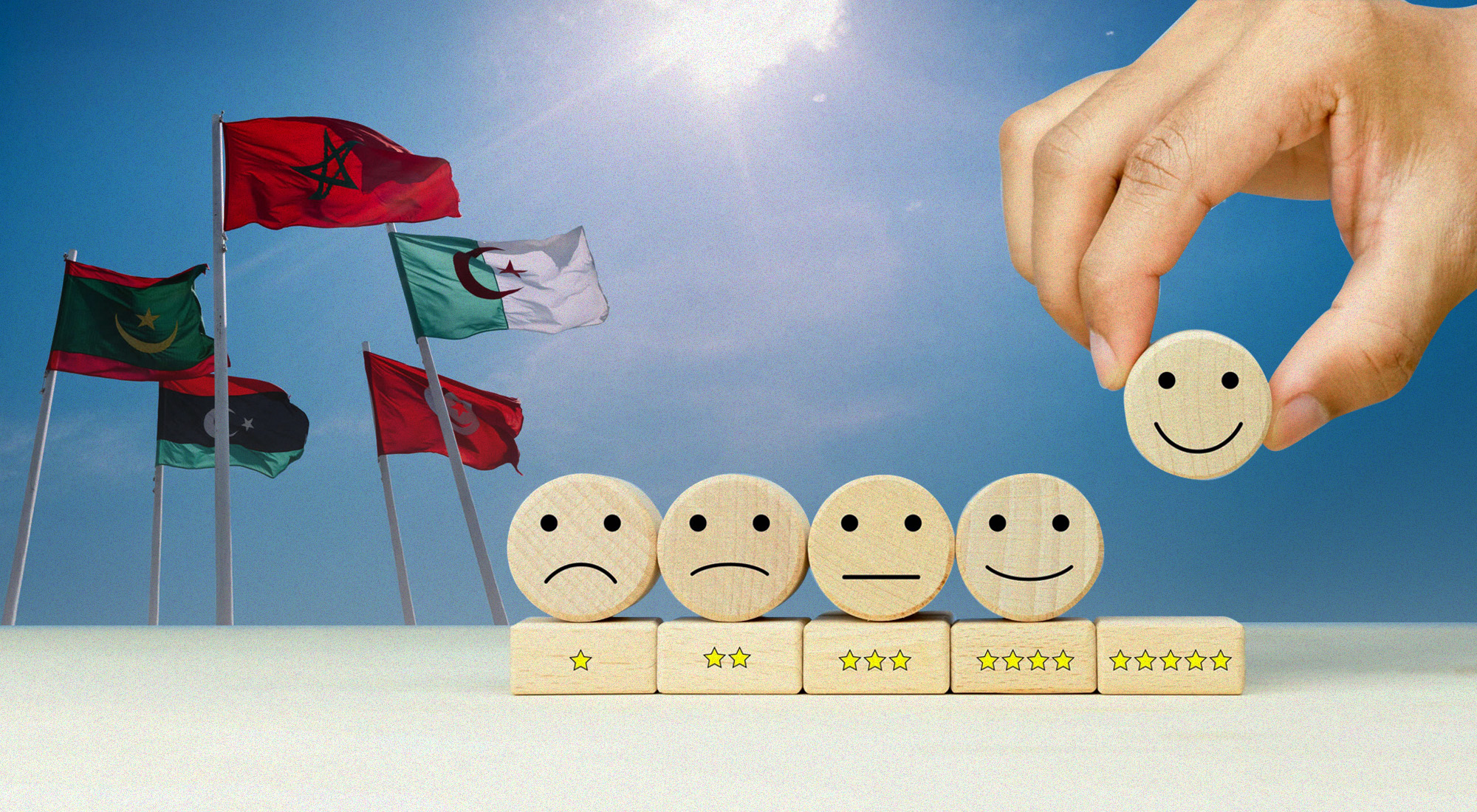Covid-19 pandemic brutally highlighted one of the biggest challenges facing the world: food security. The problem was in sharp focus amid the turmoil that plagued the international trade system and food supply chains when the pandemic forced the suspension of flights, reducing trade and resulting in shortage of labor.
The crisis also pushed many countries across the world to devise strategies dedicated to enhance food security. The Gulf Cooperation Council (GCC) countries are the forefront of these efforts. The strategies focused on adopting precautionary and preventive measures to alleviate the impacts of the pandemic. GCC countries adopted and applied several policies to secure strategic reserves of food to prevent potential shortages.
This paper aims to highlight the efforts made by GCC countries to tackle this potentially dangerous crisis. The paper looks at the key factors behind the region’s food security problem and the methods adopted by GCC countries to manage the Covid-19 crisis, particularly the UAE’s efforts to achieve sustainable food security in the face of the pandemic pressure.
Key factors behind food security
As GCC countries strive to achieve food security, they have to consider three main determinants: natural resources, geographic characteristics and demographic features.
- Natural water resources
The natural determinants stem from the wide desert landscape of GCC countries. This region is characterized by the scarcity of natural fresh water resources as it does not have rivers or springs, and it suffers from a progressive decrease in underground water resources. Rainfall rate in this region is considered among the lowest in the world, while evaporation rates are very high because of the hot weather conditions that prevail during most months of the year.
Some studies indicate that more than half of Arab countries – particularly GCC members – suffer from severe scarcity of fresh water. The annual per capita renewable water resources (mostly water wells) in GCC countries is less than 500 cubic meters, compared with the global annual per capita average of 7,525 cubic meters.[1]
The United Nations has classified these countries as severely suffering from shortage of fresh water. The UN Water Poverty Index considers every country with a per capita renewable water resource of less than 1,000 cubic meters as suffering from severe water shortage. Accordingly, the countries in this region depend mainly on the desalination of seawater to fulfil their water needs. Reports show that the Arabian Gulf region hosts 60 percent of desalination projects around the world[2].
Undoubtedly, water scarcity leads to negative impacts on agriculture in GCC countries. As most agricultural crops need water, these countries are obviously not in a position to produce the food they require through domestic agriculture. This situation pushed GCC countries to depend – to some extent – on importing their needs of water from abroad. Ultimately, this situation represents food security problem.
- Geographic characteristics
The natural geographic environment of GCC countries is not exactly farming-friendly. It is not surprising that the agriculture sector in GCC countries contributes only 1.4 percent of the GDP.[3] While producing agricultural crops to meet the needs of domestic consumption is fundamental to achieving food security, GCC countries suffer from shortage of agricultural products mainly because they face shortage of arable lands, poor quality of soil and hot climate conditions (in addition to the scarcity of water).
The fragility of the agriculture sector in GCC countries is evident in their high trade deficit in food. Trade data reveal the massive dependence of these countries on foreign resources to get agricultural products. A report issued by GCC Statistical Center in May 2020, “The impacts of Coivid-19 pandemic on GCC countries in health, social and economic fields”, reveals that trade deficit in foodstuff amounted to $27.6 billion in 2018. Also, in 2018, the GCC countries had registered the highest trade balance deficit in cereals group, which amounted to $7.0 billion.[4]
The effect of the geographical determinants looks huge on the agriculture sector in GCC countries, particularly on cereals. GCC’s dependence on foreign countries to secure cereal supplies has been growing. The chart below shows that Bahrain, Qatar and Kuwait were 100 percent dependent on cereal imports in 2017, closely followed by the UAE (96 percent), Oman (94 percent) and Saudi Arabia (92 percent).
Figure 1: GCC countries’ dependence on imported cereals (%)

Source: Report issued by UN Food & Agriculture Organization (FAO)
titled: Covid-19 and its impact on food security in the Near East and North Africa:
how to respond? https://bit.ly/2HWk06u
- Demographic factors
The population growth rate in GCC countries is among the highest in the world. The 2018 annual report of population statistics issued by the GCC Statistical Center showed that the total population in GCC countries rose from 44.3 million in 2010 to about 53.5 million in 2016 — an increase of 9.2 million (about 20.8 percent).
GCC population is expected to rise to about 106.8 million by 2033. This prediction is based on the assumption of continuing the 4.1 percent growth rate that was registered during the period 2003-2016. This means the GCC population will double over a period of 17 years, considering 2016 as the base year.[5]
Figure 2: GCC population, 2003-2033 (millions)

Source: GCC Statistical Center
Undoubtedly, the increasing population in GCC countries leads to an increase in demand for food. This situation makes food security issue in GCC countries more complex.
Food security in GCC countries
GCC countries witness a constantly widening gap between their local production of foodstuff and domestic consumption because of the factors presented above. This gap has made these countries greatly dependent on global markets to secure their basic needs of foodstuff. GCC countries import about 90 percent of these needs.
Figure 3: GCC imports of food commodities, 2010-2020 (billions of US$)

Source: Economist Intelligence Unit
The figure 3 table reveals the increasing cost of food imports in GCC countries. The value of these imports has doubled from US$25.8 billion in 2010 to US$53.1 billion in 2020. If the GCC population growth and food demand keep rising, the cost of imports too will keep increasing in the coming years. According to a report issued by the UN Economic & Social Committee for Western Asia (ESCWA) and the UN Food & Agriculture Organization (FAO), titled “Arab horizon 2030: prospects for enhancing food security in the Arab region”, dependence on food imports will remain one of the crucial challenges facing the Arab world, even beyond 2030.[6]
In such a situation, it was natural for GCC countries to worry about the consequences of Covid-19 pandemic and its impacts on the availability of foodstuff in global markets. In a joint statement in April 2020, three international organizations (FAO, WHO and WTO) warned about food security risks facing the world because of the turbulence in the agricultural produce market as a result of the pandemic.
They warned that if some of the cereal exporting countries decided to keep their crops as national reserve to avoid the impacts of a possible shortage or reduction in prices, the importing countries might be exposed to severe food shortages. The statement also said that the uncertainty about food availability might cause a wave of restrictions on exports. These restrictions, in turn, might create food shortage in the global market.[7]
The pandemic also caused worries that some governments might opt to restrict the flow of basic food commodities in order to secure the needs of their peoples. The pandemic created confusion in food supply chains as a result of the precautionary measures that were applied by those countries to contain the crisis and alleviate its harmful consequences. Those measures included physical distancing among people, imposition of restrictions on individuals’ movements, lockdowns that led to partial closure of roads, seaports, airports, factories, trade and banks, which almost caused a global economic collapse.
Due to the worsening impacts of the pandemic, some countries restricted or suspended the export of foodstuff fearing that a rise in internal demand might lead to a depletion of their strategic reserves. In late March 2020, Russia – the biggest exporter of wheat in the world – restricted its exports of cereal products, in order to protect internal consumption. The Russian Ministry of Agriculture proposed to reduce Russian cereal exports including wheat, to merely 7 million tons during April and June 2020. It also decided to sell one million ton of its reserve stock of wheat in the local market to curb rising prices.[8]
Similarly, Kazakhstan prohibited export of basic foodstuff, such as wheat flour, sunflower oil, black wheat and some vegetables. Vietnam – the third largest exporter of rice in the world – suspended all new rice export contracts pending an assessment of the sufficiency of its internal reserves during the global crisis period.[9]
The FAO report, “Covid-19 and its impact on food security in the Near East and North Africa: how to respond?” highlighted the Gulf region’s food worries. It noted that because of the relatively limited agricultural products, and massive dependence on importing foodstuff, GCC countries are relatively exposed to low-to-medium risks in securing supplies as well as rising demand.[10]
However, in spite of the natural determinants that impact food security and the negative consequences of the pandemic, these countries showed great ability and high efficiency in managing the crisis. They were able to afford the costs of food commodities and providing them to people. In this context, it is worth mentioning that GCC countries scored high in the Global Food Security Index (GFSI) in 2019. This index evaluates the factors and indicators related to the affordability and cost of food, besides availability and quality, in 113 countries. GCC members scored high, although they neither have the necessary climate, nor the fertile soil, nor the water resources, which are the basic factors available in other countries around the world,[11] as shown in Figure 4.
Figure 4: GFSI scores in 2019

How GCC countries managed food security risk
In managing food security during the Covid-19 pandemic, GCC countries applied many measures to secure a strategic food reserve and to alleviate the risks stemming from the changes in global markets, besides securing their own supply chains. These measures are designed to tackle emergencies that might disrupt the flow of basic food commodities across the world.
- GCC coordination
The pandemic pushed GCC countries to coordinate their efforts to ensure food security in the face of potential disruption of food imports. At the specially convened meeting of GCC deputy ministers of commerce in April 2020, they discussed the proper methods of handling the Covid-19 situation, and the proper ways of cooperation to ensure provision of basic goods and services during the crisis. The measures adopted to provide medical, food and safety materials and equipment and the cooperation frameworks to secure imports, and support exports were also part of the agenda. They talked about the initiatives needed to stimulate economies and extend support to the badly affected sectors. They also discussed the need to devise a mechanism for coordination to secure the flow of goods and the stability of prices.
The meeting mainly focused on applying proper procedures that guarantee the flow of foodstuff and basic needs besides providing the vital services for citizens and residents in GCC countries. The meeting approved the mechanisms to achieve these aims, including coordination through the GCC Chambers of Commerce, to develop efforts and devise the required measures to secure imports to and support exports from all GCC countries. They also decided to further develop GCC channels of cooperation in importing foodstuff and creating a follow-up team to enhance coordination and consultation on securing imports.[12]
- GCC Food Security Network
In April 2020, Kuwait proposed the establishment of an integrated food security network for GCC countries. This proposal was designed on the basis of a directive from the GCC General Secretariat. The Kuwaiti proposal included the idea of establishing fast routes at GCC customs centers to ensure quick clearance and delivery of food and medical supplies. It suggested the launch of a “Food Security Paper”, besides regular meetings between the commerce ministers and their deputies to discuss the current situation. The proposal highlighted the importance of devising speedy and effective mechanisms for cooperation among GCC countries to manage the harmful consequences of the pandemic. It called for more efforts to achieve the highest level of economic and commercial integration among GCC members.[13]
The GCC also sought to adopt a Strategic Food Reserve Law in all member states. Other GCC countries may benefit from the UAE’s federal law on strategic food reserve, which is based on effective partnership with the private sector, data collection and constant monitoring of the movement of goods in local markets and countries of origin. The UAE law also aims to develop logistics operations that are related to the successful management of the reserve.[14]
- Building of strategic food reserves
GCC countries worked hard to ensure that they have food reserves that would last for six months, including cereals, basic foodstuff, fruits, vegetables, meat, dairy products and fish. Some countries sought to keep huge reserve stocks of foodstuff that amount – in some cases – to keeping wheat stock to last for 12 months.[15]
GCC countries invested heavily in the infrastructure that is required to achieve this target and to compensate any possible disruption in import supplies that might affect food security. Saudi Arabia, for example, has the biggest food reserve stock in the Middle East region, according to the reports issued by the Kingdom’s Ministry of Commerce. The wheat flour storehouses, which are run by Saudi Grains Organization, provide all types of baked products, with a total storage capacity that amounts to more than 3.3 million tons of wheat.[16]
- Expanding foreign investment
GCC countries consider foreign investment in agriculture a strategic option to achieve food security. These countries have the options of concluding partnerships and agreements with foreign countries that offer good agricultural potential and access to resources such as water labor.
The Saudi Agricultural and Livestock Investment Company (SALIC) is a key example in the region. SALIC, which is affiliated to Saudi Public Investment Fund, owns 29.91 percent of Daawat Foods Limited Company, affiliated to India Agribusiness Fund, and a leading producer of Basmati rice. These activities comply with SALIC’s strategy of investing in rice production with the aim of strengthening the rice supply chain.[17]
- Economic support for agriculture sector
The GCC governments also extended economic support packages to support the agriculture sector to cushion the impact of Covid-19 and ensure food security. For example, the Saudi Agricultural Development Fund provided SAR2.450 billion to support agricultural projects and food imports.[18]
UAE’s lead in sustaining food security
While many countries in the world have faced concerns regarding the availability of foodstuffs in the aftermath of Covid-19, His Highness Sheikh Mohammed bin Zayed Al Nahyan, Abu Dhabi Crown Prince and the Deputy Supreme Commander of UAE Armed Forces, assured that securing food and medicine is crucial. That statement shows the UAE government’s commitment to effective policies to ensure food security.
As part of this pre-emptive approach, the UAE had already taken several steps over the years to enhance food security in the country. They contributed extensively in strengthening the UAE’s capability in tackling the impact of the pandemic on the availability of food. The following are the most significant of such measures:
- UAE National Food Security Strategy 2051
In November 2018, the UAE government launched the National Food Security Strategy with the aim of developing a comprehensive national system to enable sustainable food production. This strategy focused on utilizing the most advanced technologies and techniques and best practice to enhance domestic production, building international partnerships to diversify sources of securing food and implementing regulations and policies that contribute to improving nutrition and reducing food wastage.
This strategy was also designed to boost the UAE ranking in the Global Food Security Indexes and transforming the country to a food security hub based on innovation. It aims to make the UAE among the best 10 countries in the Global Food Security Index by 2021, and the best country in the world by 2051. The UAE strategy includes 38 short and long-term initiatives in compliance with Vision 2051 and the 2021 Agenda. These initiatives will be implemented through five strategic orientations that focus on facilitating global food trade, diversifying the sources of food imports and devising alternative supply plans, which include three to five different sources for each essential food type.[19]
- Emirates Food Security Council
In 2019, the UAE government approved the formation of the Emirates Food Security Council, with the aim of enhancing the governance system overseeing food security involving various departments and agencies. The council seeks to achieve the objectives of the National Food Security Strategy and create a tangible role based on cooperation among all the relevant institutions and authorities. The council is working hard to fulfil this role through a joint strategy that defines the challenges and devises practical solutions to be applied on the ground.
The council implements the plans and objectives of the National Food Security Strategy. It also reviews the regulations related to food security before adopting them at the federal level. It takes a pan-Emirates integrated approach in implementing the national strategy and system. Its mission also includes:
- proposing systems, regulations and policies, which are designed to enhance UAE food security
- setting the investment agenda for food security inside and outside the country
- studying the risks related to global challenges, which might impact food system, such as climate change, drought and political stability in the food exporting countries, among other things
- developing initiatives to ensure the availability of comprehensive and diversified supply of food products, such as logistical connectivity, competitiveness, advanced infrastructure, high quality, export and import
- developing databases.[20]
Undoubtedly, the launch of the National Food Security Strategy 2051 and establishment of the Emirates Food Security Council formed a strong foundation which helped the country in managing the food supply situation during the pandemic.
The UAE also adopted a set of other measures including:
- Federal law on strategic food reserve
In March 2020, the UAE government issued the Law of Strategic Stock of Food Commodities in UAE. The law helped define and clarify the legal measures to raise the level of UAE food reserve under all circumstances, such as crises, emergencies and disasters.
This law seeks to enhance and integrate the partnership between the government and the private sector to serve national strategic objectives. It enables the registered suppliers and businessmen to keep a safe reserve stock of food at all times and to release the required goods according to well defined distribution plans. The law also includes a provision that the registered merchants and suppliers would be granted a package of incentives and facilities to ensure their compliance with the standards mentioned in the law. The law enables electronic linkage between the suppliers and the relevant government authorities to continuously monitor the status of the strategic reserve.[21]
- Enhancing reserve stock
The UAE sought to increase its reserve stocks of the basic food commodities. It raised the total food stock limit for long periods by 30 percent, with the value more than half a billion dirhams. Accordingly, the number of food commodities kept in stores increased to more than 69,000 different items.[22]
In its efforts to enhance these food stocks, the UAE government adopted a target to locally produce half of the food items consumed inside the country. Currently, it produces only 20 percent of the food commodities that are consumed domestically.[23] The UAE also sought to develop its agriculture sector through diverse measures such as supporting the usage of modern technology, increasing the competitiveness of local products, creating business opportunities in the sector, encouraging innovation and creating new types of agriculture. The UAE is considered the first Arab country that implemented vertical farms that offer many benefits such as preserving natural resources and reducing water consumption by 90 percent, compared with traditional farming methods.[24]
The UAE also sought to double the operating capacity of national factories producing food and beverage items during times of crises and emergencies. During the early stages of Covid-19 pandemic, the local production of 568 UAE factories amounted to 5.96 million tons of food and beverage products. This figure included 2.3 million tons of various types of the basic foodstuff.[25]
The UAE’s success in managing the exceptional circumstances that were created by the Covid-19 crisis may be attributed to the production of sufficient quantities of healthy food with proper nutritional value and reasonable cost. The deployment of technologies offered by Industry 4.0 has been a key factor in this success, along with the increase in agricultural investment. The UAE industries managed to increase the volume of production by more than 60 percent compared with the production in normal situations.[26]
- Food Research Platform
In February 2020, the UAE Food Security Office launched an electronic food research platform, which is considered the first of its kind in the region. The aim of this platform is to build a knowledge base for all scientific and applied researches related to food security carried out in the UAE.
The e-platform aims to meet the needs of various departments and authorities that are relevant to food security. It will provide information and data about all the components of food security, including sustainable food systems. It will help organize the process of research and development to ensure its coherence with the UAE National Food Security Strategy.
The e-platform also aims to be a base of references for researchers, individuals and think tanks in order to develop mechanisms and solutions for food security for UAE. Relying on hi-tech and state-of-the-art technologies, it aims to create and manage a national comprehensive research base in local food production. This e-platform includes eight research arenas in the field of food security, including farms based on the internet of things (IoT), which utilizes up-to-date ICT in agriculture and modern techniques in agricultural supply chains. The use of robots and equipment would mean the deployment of robots and drones in farming and control of weeds.
The e-platform also encourages the reduction of agricultural waste and usage of materials of animal origin to enhance the development of materials originating from plants. The idea is to replace the plastics and other manufactured ingredients in agriculture. The platform also includes research to produce alternative healthy and sustainable foodstuff and innovative agriculture, which is based on applying up-to-date agricultural technologies.
Finally, the Food Research Platform includes agricultural biotechnology, which consists of a set of technological tools that are used to change the characteristics of living creatures, both plants and animals, with the aim of improving and increasing agricultural and animal production, besides developing microorganisms to be used in agriculture.[27]
Conclusion
The Covid-19 pandemic threw up a surprising test for the efficiency of countries in managing the consequences created by the pandemic. This was particularly evident in meeting the challenge of ensuring food security at a time when many countries adopted precautionary and preventive measures, such as the closing of borders and disrupting food supply chains. Under these circumstances, GCC countries, particularly the UAE, stood out as a major success in crisis management. GCC members benefited from their investments during the past years that were dedicated to guaranteeing food security. They also applied new procedures including legislative, legal and logistics actions that enabled them to contain the negative consequences resulting from the pandemic, particularly in sustaining food security. This was achieved through a combination of measures that included the building of a secure strategic food reserve, diversifying food import sources and making strategic international investments in agriculture.
References
[1] Walid Khalil Zebari, “The governance of water and cooperation about water at the regional level in Arab region”, Emirates Diplomatic Academy, October 2019, at the link: https://bit.ly/2HZ7PpM
[2] “GCC countries host 60 percent of seawater desalination operations in the whole world”, Future Monitor website,
April 28, 2020, at the link: https://bit.ly/2HPT1d7
[3] GCC Statistical Center, “A glimpse about agriculture statistics in GCC countries, 2018”, retrieved in December 2019, at the link: https://bit.ly/386zSOH
[4] GCC Statistical Center, “The impacts of (Corona) Covid-19 pandemic on GCC countries, in the health, social and economic fields”, May 2020, at the link: https://bit.ly/3kT9aN5
[5] GCC Statistical Center, “Population statistics in GCC countries, 2016”, retrieved in November 2018, at the link: https://bit.ly/35ZVVUv
[6] United Nations (ESCWA0 and (FAO) organizations: “Arab Horizon 2030: Prospects for Enhancing Food Security in the Arab Region”, at the link: https://bit.ly/388evwf
[7] “Global food security is facing the risks of a crisis because of the outbreak of Covid-19”, FRANCE 24 website, April 1, 2020, at the link: https://bit.ly/35YwAdI
[8] Ibid.
[9] Ibid.
[10] A report issued by UN Food & Agriculture Organization (FAO) titled: Covid-19 and its impact on food security in the Near East and North Africa: How to respond?” at the link: https://bit.ly/2HWk06u
[11] Performance of countries based on their 2019 food security score, https://bit.ly/3eo6uEL
[12] UAE News Agency (WAM), “Deputy Ministers of GCC countries discuss the joint efforts to enhance the strategic food stock”, April 12, 2020, at the link: https://bit.ly/366fQ48
[13] Al-Ittihad newspaper, “GCC agreement to establish a united Food Security Network”, April 17, 2020, at the link: https://bit.ly/3jYWRxk
[14] Al-Bayan newspaper, “GCC Deputy Ministers of Commerce discuss how to curb the impacts of Corona pandemic on Gulf economies”, March 28, 2020, at the link: https://bit.ly/3jXBP22
[15] UN Food & Agriculture Organization (FAO) report titled “Covid-19 and its impact on food security in the Near East and North Africa: How to respond?” Op cit.
[16] Al-Arabiya website, “KSA: We have the biggest food reserve stock in the Middle East”, March 17, 2020, at the link: https://bit.ly/3kVKh3t
[17] Al-Arabiya website, “Saudi Arabia SALIC acquires 2.9.9 percent of an Indian agricultural company”, May 23, 2020, at the link: https://bit.ly/2HZyUsv
[18] Al-Arabiya website, “KSA supports food security with the amount of 2.45 billion riyals”, June 4, 2020, at the link: https://bit.ly/2TNWT0B
[19] The Official Portal of UAE government, “The National Food Security Strategy 2051”, at the link: https://bit.ly/364OdbB
[20] UAE news agency (WAM), “Maryam al-Mehairi: UAE Food Security Council enhances the governance of food profile among the relevant authorities in the country”, January 12, 2020, at the link: https://bit.ly/3enp8fQ
[21] WAM, “Sultan Al-Mansouri: The Law of Strategic Stock of Food Commodities complements the UAE efforts in confronting abnormal circumstances”, March 31, 2020, at the link: https://bit.ly/361VKYL
[22] UAE Federal Competitiveness and Statistics Authority, “UAE government initiatives to confront Coronavirus crisis”, at the link: https://bit.ly/385YqaB
[23] Al-Arabiya website, “Food security is a joint responsibility of all countries, under the impacts of Covid-19 crisis”, June 2, 2020, at the link: https://bit.ly/388TCRK
[24] Al-Arabiya website, “Food security is a joint responsibility of all countries, under the impacts of Covid-19 crisis”, June 2, 2020, at the link: https://bit.ly/388TCRK
[25] UAE Federal Competitiveness and Statistics Authority, “UAE government initiatives to confront Coronavirus crisis”,
Op. cit.
[26] Al-Rowyah newspaper, “Climate Change: the rise of agricultural production by 60 percent in UAE”, April 25, 2020, at the link: https://bit.ly/3jRPisd
[27] WAM, “UAE Food Security Council launches the open Food Research E-Platform”, February 19, 2020, at the link: https://bit.ly/32Oc4eU








